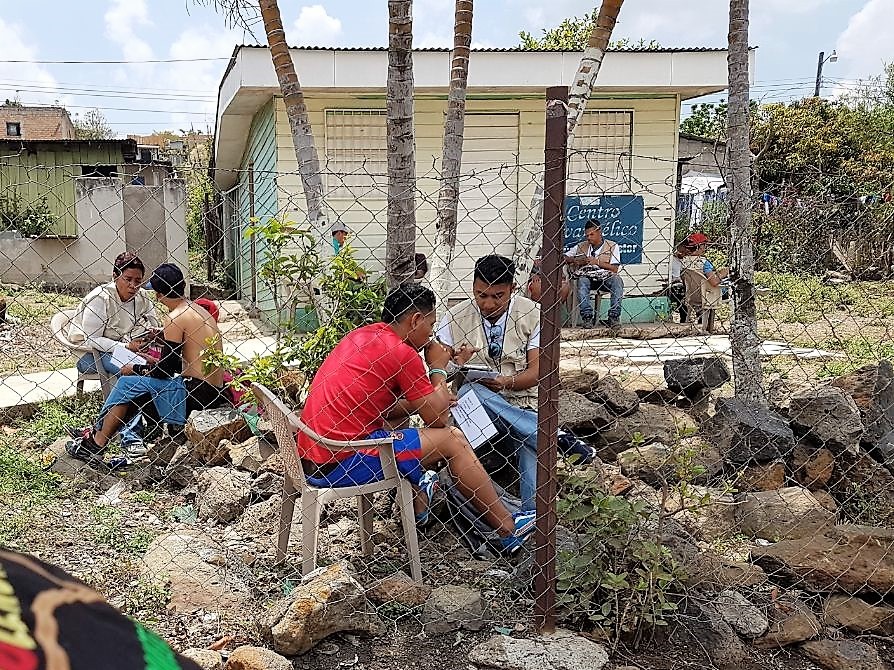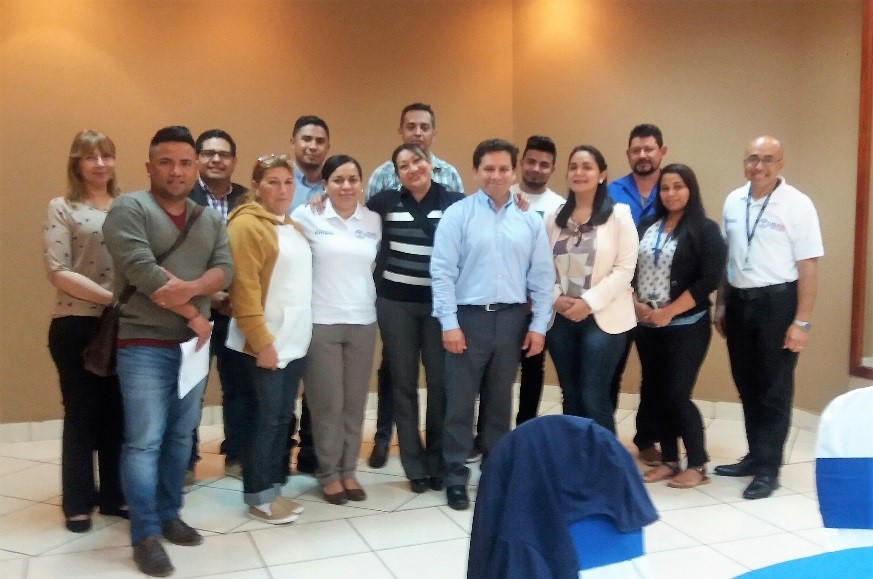FROM THE FIELD

Dexis Applies Evidence-Based Science to Better Target Interventions in Honduras
August 10, 2017
The Country Development Cooperation Strategy (CDCS) for Honduras warns “Honduras’ fragile democracy is increasingly threatened by alarming levels of crime and violence.” To help combat the violence, Dexis Consulting Group is working with USAID/Honduras to identify youth that may partake in violence and target them with prevention activities.
Through the Monitoring and Evaluation Support for Collaborative Learning and Adapting (MESCLA) Activity, Dexis is evaluating the Empleando Futuros Activity. Empleando Futuros is one of USAID’s interventions aimed at increasing citizen security by supporting workforce development activities and Cognitive Behavior Therapy for youth who are most at-risk of perpetrating violence. As a key part of the evaluation, Dexis partnered with the University of Notre Dame Initiative for Global Development (NDIGD) to validate, pre-test, and pilot a Young Adult Risk of Violence Measurement Tool for use by Empleando Futuros and other interventions aimed at risk reduction among the 16-30 working age population.
| |
|

The MESCLA/NDIGD team pilot tests the Young Adult Risk of
Violence Measurement tool with target populations
Photo by Josue Martinez from Jovenes contra la Violencia |
| |
|
|
| |
|

The NDIGD and MESCLA team pose with USAID/Honduras staff
and data collectors after training
|
Dexis and the NDIGD team developed the tool to determine which potential program beneficiaries are “the most at risk of being perpetrators of violence.” As the MESCLA Chief of Party Patricia McLaughlin explains, “This will allow the program to focus on the specific needs of these high-risk individuals.” The tool needed to include dynamic resilience factors, be applicable by non-clinicians, be practical for activity implementation, be comparable to risk measurement tools used in Honduras for a younger age group, and reflect scientifically rigorous validation procedures. To develop the tool, Dexis and the NDIGD team reviewed three meta-analyses of over two dozen structured risk assessments used in mental health and criminal justice settings (primarily in US and Europe). The team also reviewed the Youth Services Eligibility Tool (YSET) methodology used in other USAID projects, literature on personal and community resiliency, emotional regulation, and self-reported deviance as additional domains of potential interest, as well as literature on psychological survey shortening.
With MESCLA’s support, NDIGD undertook a 100-person pre-test of the tool’s questionnaire to ensure that its language was appropriate. NDIGD then conducted a pilot evaluation among 1,200 16-30-year-olds from high-crime communities, including 240 inmates at adult and youth penitentiaries and detention centers. The pilot validated the tool for use in Honduras and enabled the team to shorten the tool by 38% while maintaining its validity.
Next, the team defined the secondary risk level. Secondary risk refers to those who show risk factors similar to known offenders (in the YSET case, youth who are already members of gangs). To determine the risks levels, the team calculated a score for the whole sample using the responses from the final tool that included the validated instruments. The distribution of this score was examined for people in jail and a cut-off point was found around the 25th percentile. This cut-off point was applied to the non-incarcerated people to create primary and secondary risk categories.
Those incarcerated showed a gradual rise in numbers as risk factors increase until a peak at the high-risk end. Those not incarcerated were largely at the low risk end of the scale with a gradual tapering of numbers as risk factors increased. “These findings confirm what the literature suggests,” McLaughlin explains, “A relatively small segment of society is involved in violence, and even in high crime neighborhoods, a relatively small proportion of youth is more likely to perpetuate violence. Targeting these youth with specific prevention activities might have a particularly strong impact on levels of violence.”
The Young Adult Risk of Violence Measurement Tool will allow Empleando Futuros to target program beneficiaries most likely to perpetrate violence, asses if the intervention is recruiting and graduating at-risk youth and, if not, adjust recruitment and intervention strategies. Measuring any changes in risk and resilience during and after program participation will enable the Empleando Futuros team to learn from and adapt the intervention in response to new findings. These focused efforts support USAID in continuing to help combat violence and promote security and economic development in Honduras.
About Dexis
Dexis Consulting Group is a performance management and international development consulting firm with 15 years of experience strengthening systems for the U.S. Government to address some of the world’s greatest challenges. Committed to our mission of providing innovative management and technical solutions for a secure and prosperous world, we focus on delivering exceptional monitoring, evaluation, and learning expertise; program management and support services; and international development project implementation. Our work focuses on agriculture, countering violent extremism, economic growth, education, health, and democracy, governance, and stabilization.